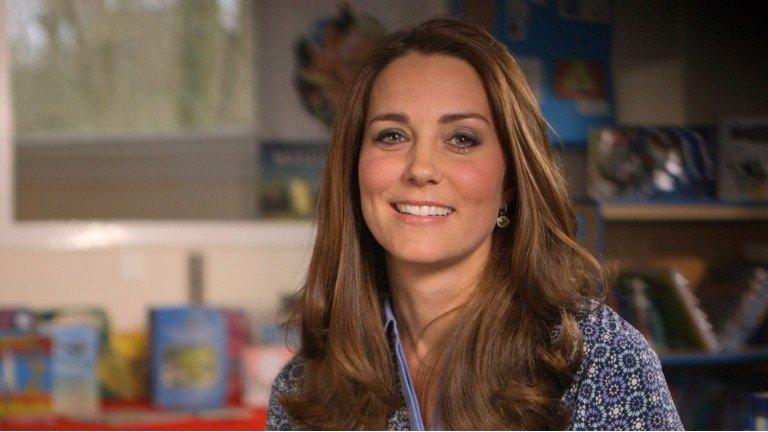Kate launches childhood survey to help under-fives
- Published
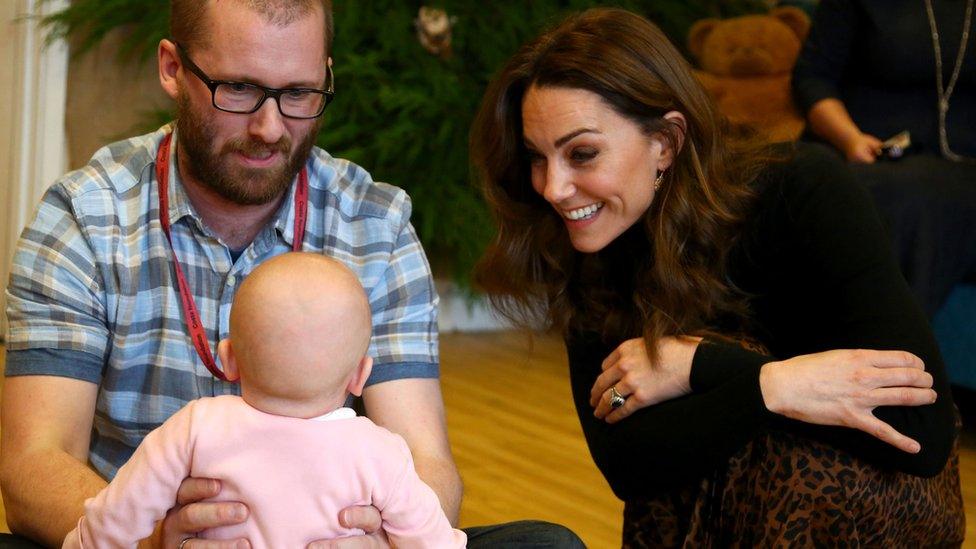
The duchess, pictured meeting children and parents in Cardiff, has previously called children's early years "the most important years, for life long health and happiness"
The Duchess of Cambridge has launched a UK-wide survey to help improve early childhood.
The five-question online survey aims to "spark a national conversation" to help create "lasting change for generations to come", Kensington Palace said.
Catherine is marking its launch with a 24-hour UK tour, visiting Birmingham, London, Cardiff and Surrey.
The NSPCC said the project would be a "vital source of information".
In the online survey, called Five Big Questions, external, participants are asked for their opinion on what influences development and what period of childhood is most important for children's happiness.
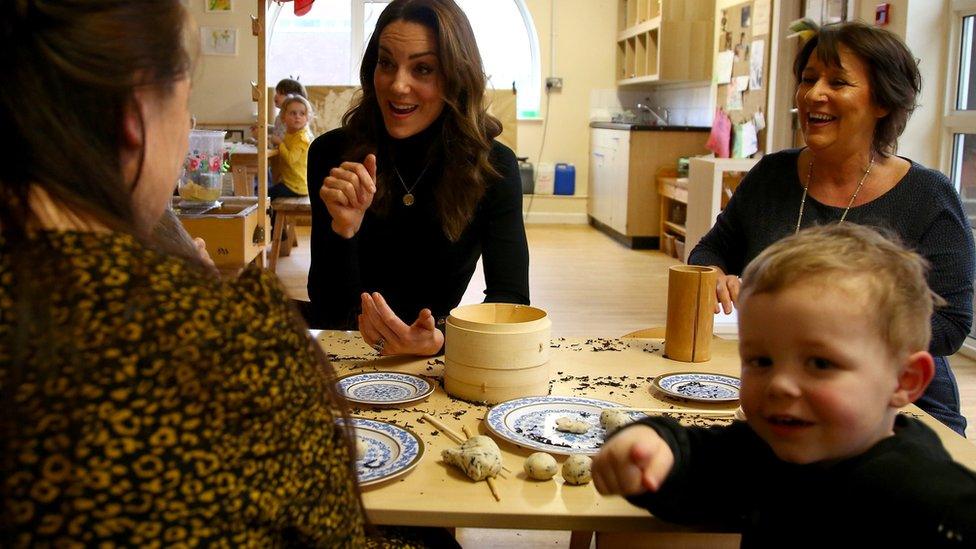
The duchess visited a baby sensory class at the Ely and Caerau Children's Centre in Cardiff
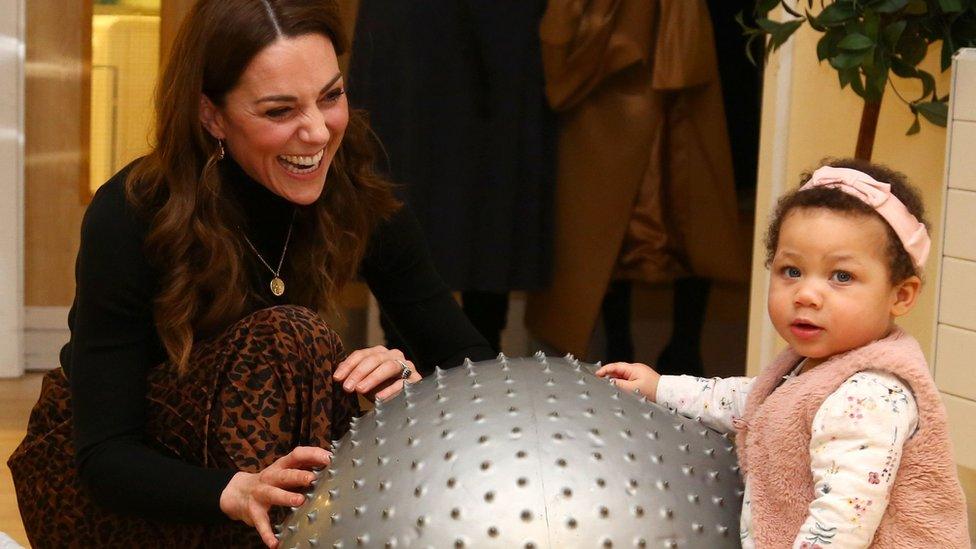
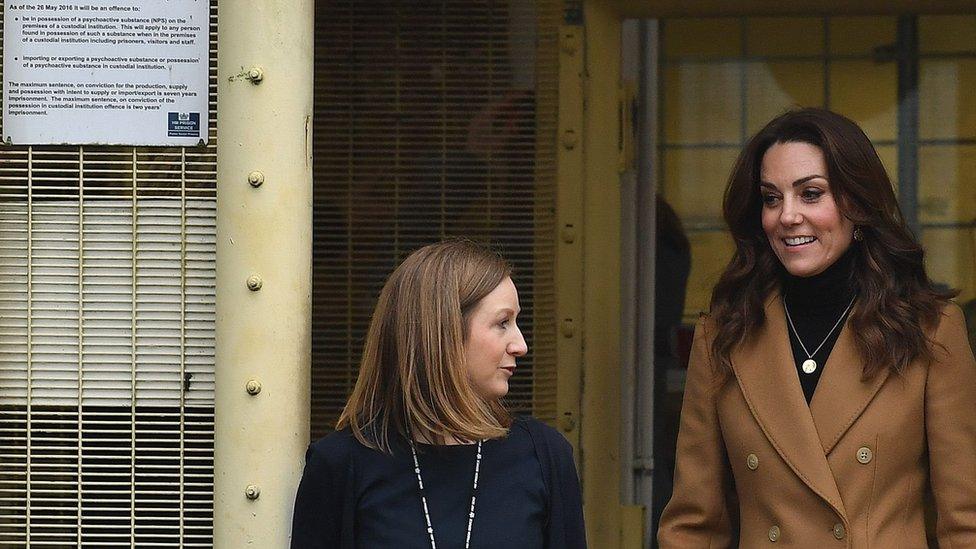
Catherine also visited HMP Send in Woking
On Tuesday, the duchess visited Thinktank, a science museum in Birmingham.
She was shown around an interactive mini city inside the museum and spoke to parents and carers about the survey.
On Wednesday, Catherine visited a baby sensory class at the Ely and Caerau Children's Centre in Cardiff to hear about the support parents receive there.
She also attended HMP Send in Woking, Surrey, to speak with women prisoners taking part in a rehabilitation programme.
The scheme, run by The Forward Trust, aims to break cycles of addiction and crime and is the only 12-step prison-based drug and alcohol programme for women in the UK. The duchess also visited the prison in 2015.
The survey's launch comes after the Duke and Duchess of Sussex announced they wanted to step back from being senior royals. Buckingham Palace said Prince Harry and Meghan will withdraw from royal duties from the spring.
Former press secretary to the Queen, Dickie Arbiter, suggested that the survey would have been planned nearly a year in advance, a long time before and Harry and Meghan's announcement.

Business as usual
Analysis by Daniela Relph, BBC royal correspondent
It is stating the obvious to say it has been a difficult week for the Royal Family.
But with Harry and Meghan now back in Canada and big decisions made about their future there is a sense of returning to business as usual... at least for now.
For the Duchess of Cambridge that means an even sharper focus on one particular area - the problems of early childhood.
Royal engagements can cover a vast number of areas but for the duchess an increasing amount of her work is targeted at early years.
This new survey will ultimately help provide important data for all those working in the area of early years, and will also inform the kind of work the Duchess of Cambridge gets involved with in the future.
Those who have worked with her in this area say she is totally committed and isn't just a figurehead.
She has built up an expertise and wants to prevent the same problems affecting the same families generation after generation.

Catherine and her husband, the Duke of Cambridge, have three children - six-year-old Prince George, four-year-old Princess Charlotte, and 21-month-old Prince Louis.
The Royal Foundation website says, external Catherine believes "many of society's greatest social and health challenges" could be "mitigated or entirely avoided" if young children are given "the right support".
Kate Stanley, from the NSPCC, says the duchess's survey will "provide fascinating insight into how we think about the early years and it will be a vital source of information for the sector".
Asked about the value of the questionnaire, she told BBC Radio 4's Today programme on Tuesday the results of the survey would help inform "the kind of conversation we need to have" with parents about the importance of a child's early years.
The Duchess of Cambridge: ''Both William and I sincerely believe that early action can prevent problems in childhood from turning into larger ones later in life''
Kayte Lawton, from the charity Save the Children, welcomed the survey and said it was "vital" that all children are given access to "high-quality services".
She said: "Parents on low incomes regularly tell us they struggle with childcare bills, especially when their children are little, and strive to juggle all of life's demands to support their children's early learning. It's not easy."
Ipsos Mori is conducting the survey on behalf of the Royal Foundation.
The company's Kelly Beaver added: "Whilst many studies have been conducted to generate evidence of the importance of the early years, there is a real lack of evidence to understand whether this is understood by the British public."
The survey will be open until 21 February.

The 'five big questions'
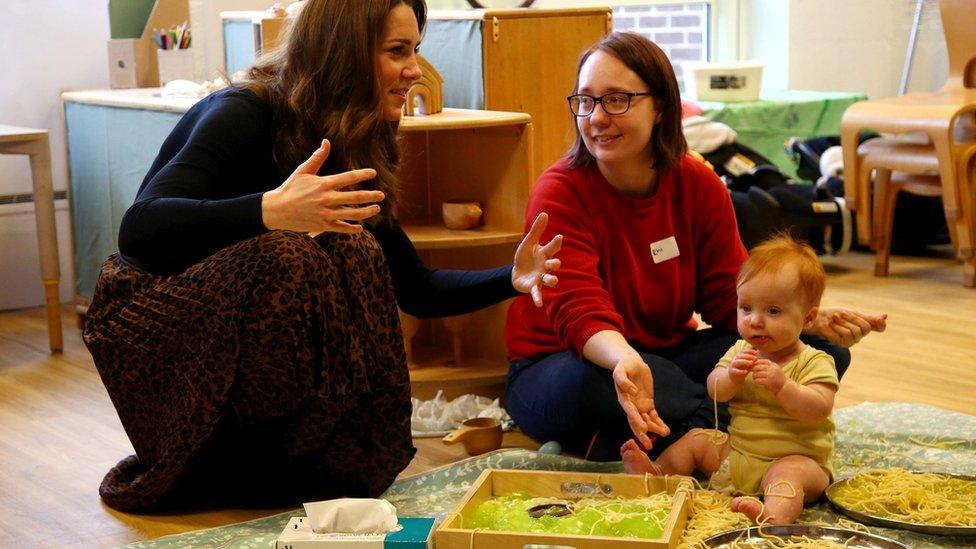
1. What do you believe is most important for children growing up in the UK today to live a happy adult life? Rank from most important to least important:
Good physical and mental health
Good friendships and relationships
Access to opportunities
Access to a good education
2. Which of these statements is closest to your opinion?
It is primarily the responsibility of parents to give children aged 0-5 the best chance of health and happiness
It is primarily the responsibility of others in society to give children aged 0-5 the best chance of health and happiness
It is the shared responsibility of parents and others in society to give children aged 0-5 the best chance of health and happiness
Don't know
3. How much do you agree or disagree with this statement? The mental health and wellbeing of parents and carers has a great impact on the development of their child(ren)
Strongly agree
Tend to agree
Neither agree nor disagree
Tend to disagree
Strongly disagree
4. Which of the following is closest to your opinion of what influences how children develop from the start of pregnancy to age five?
Mostly the traits a child is born with (i.e. nature)
Mostly the experiences of a child in the early years (i.e. nurture)
Both nature and nurture equally
Don't know
5. Which period of a child and young person's life do you think is the most important for health and happiness in adulthood?
Start of pregnancy to five years
5-11 years (primary school)
11-16 years (secondary school)
16-18 years (further education)
18-24 years (young adulthood)
Don't know
All equally important
- Published5 September 2019
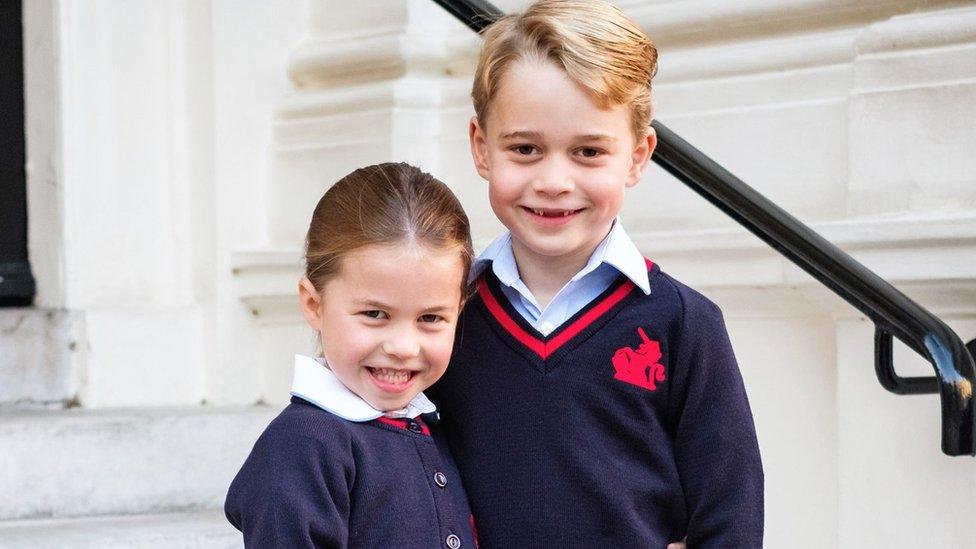
- Published7 September 2017
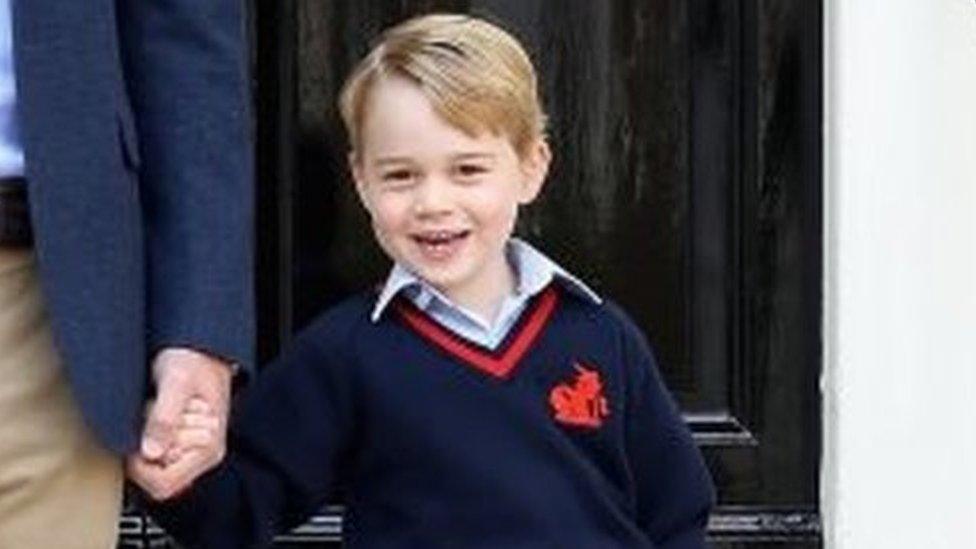
- Published27 December 2019
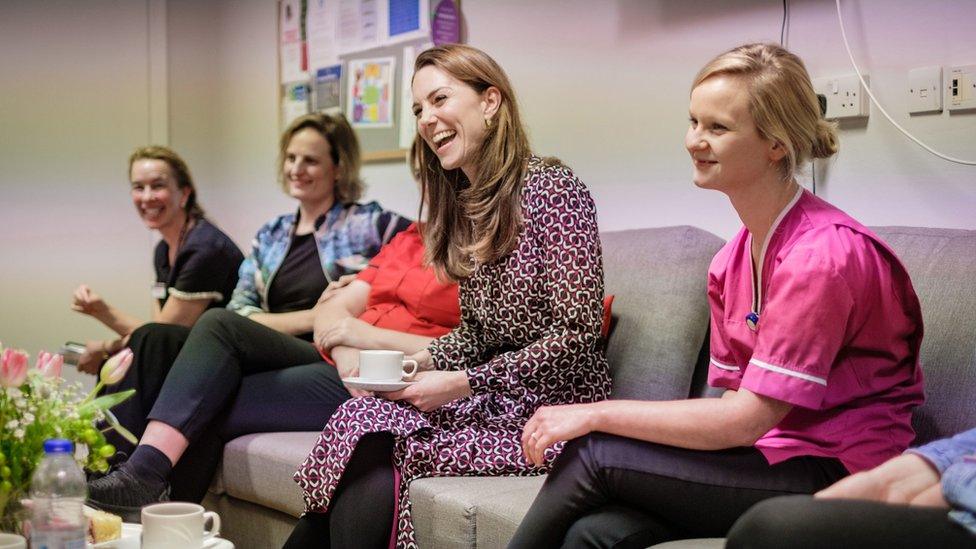
- Published15 December 2019
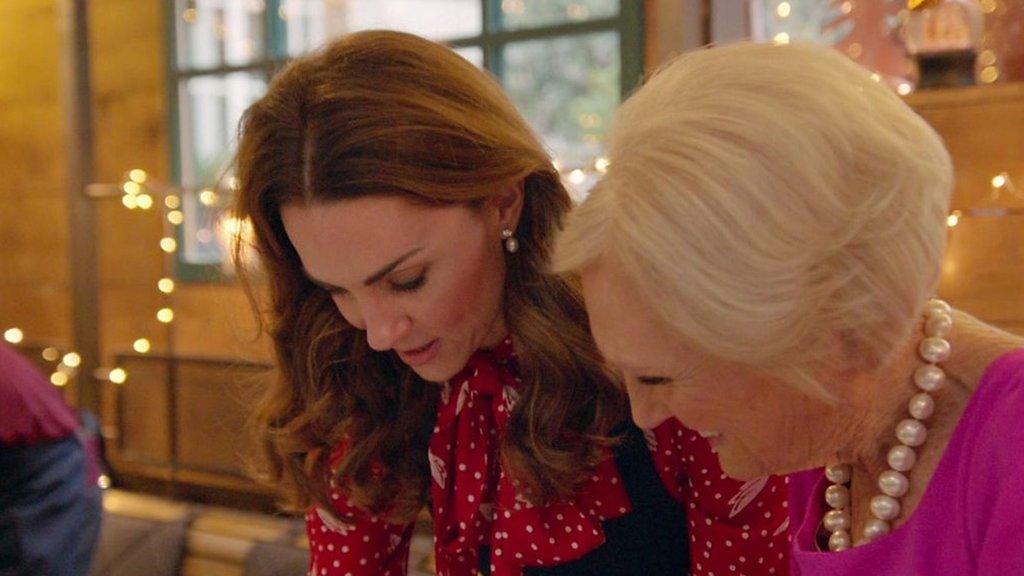
- Published16 February 2015
